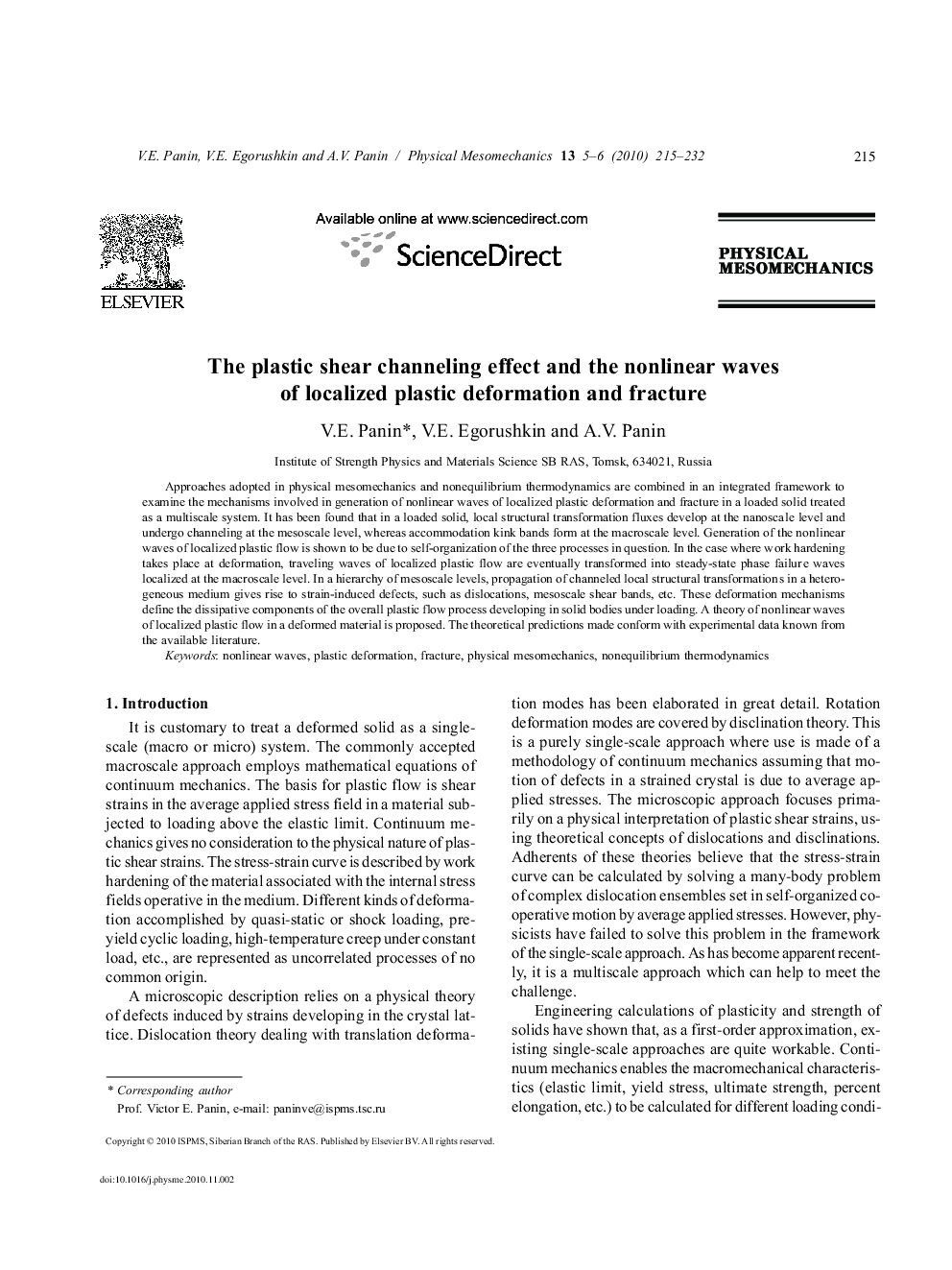| Article ID | Journal | Published Year | Pages | File Type |
|---|---|---|---|---|
| 805137 | Physical Mesomechanics | 2010 | 18 Pages |
Abstract
Approaches adopted in physical mesomechanics and nonequilibrium thermodynamics are combined in an integrated framework to examine the mechanisms involved in generation of nonlinear waves of localized plastic deformation and fracture in a loaded solid treated as a multiscale system. It has been found that in a loaded solid, local structural transformation fluxes develop at the nanoscale level and undergo channeling at the mesoscale level, whereas accommodation kink bands form at the macroscale level. Generation of the nonlinear waves of localized plastic flow is shown to be due to self-organization of the three processes in question. In the case where work hardening takes place at deformation, traveling waves of localized plastic flow are eventually transformed into steady-state phase failure waves localized at the macroscale level. In a hierarchy of mesoscale levels, propagation of channeled local structural transformations in a heterogeneous medium gives rise to strain-induced defects, such as dislocations, mesoscale shear bands, etc. These deformation mechanisms define the dissipative components of the overall plastic flow process developing in solid bodies under loading. A theory of nonlinear waves of localized plastic flow in a deformed material is proposed. The theoretical predictions made conform with experimental data known from the available literature.
Keywords
Related Topics
Physical Sciences and Engineering
Engineering
Mechanical Engineering
Authors
V.E. Panin, V.E. Egorushkin, A.V. Panin,
